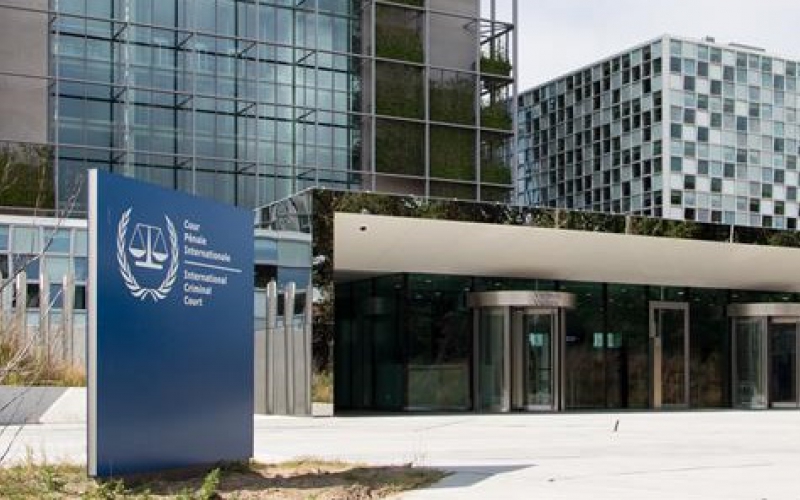Letter to Secretary Pompeo on ICC recommendations

March 18, 2020
The Honorable Michael R. Pompeo Secretary of State
U.S. Department of State
2201 C Street, NW
Washington, D.C. 20520 Dear Secretary Pompeo:
Our organizations have deep experience working on issues impacting many countries where justice for grave crimes is non-existent or inadequate, and where its absence fuels conflict. Determined efforts to achieve justice for these crimes are essential for helping victims and showing would-be perpetrators that they will be held to account – but steep obstacles persist at the national level, and judicial mechanisms are needed to afford victims with access to justice when all others fail. In many of these contexts – including Uganda, the Democratic Republic of the Congo, the Central African Republic, Sudan, and most recently, Myanmar – we have found the International Criminal Court (ICC) to be an invaluable partner as a court of last resort.
In light of this, we are writing to urge the United States to refrain from taking measures against the ICC and its staff, and instead, adopt a more constructive posture of helping the court play this vital role. We are aware that developments at the ICC regarding Afghanistan and Palestine have prompted objections from U.S. officials, as well as statements that the United States may impose economic sanctions or other penalties on the court or its personnel. This letter takes no position on the legal and policy issues raised in those two situations, which fall outside the geographic focus or mandate of many of this letter’s signatories. We are writing, however, to urge that any jurisdictional or political disagreements the United States may have with the court not interfere with the Court’s ability to provide justice as an independent judicial body.
We fully recognize that the court’s work has not been perfect. Even where it has been flawed, however, the ICC – with the backing of more than 120 member countries – has helped lift the voices and grievances of victims, highlighted types of crimes that are often neglected including crimes of sexual violence, helped empower activists to place justice on the agenda for peace talks and transitions, and helped make it more difficult for brutal perpetrators to retain and abuse positions of great power. The ICC is just one part of a broader system of justice, but in that system, it has a unique and essential role in filling gaps – and it has helped to spur judicial action or inspire advocates even in situations where it is not investigating or cannot investigate.
The United States, too, has taken significant steps to promote peace and justice in situations such as these, recognizing that doing so is in the U.S. national interest. Administrations and members of Congress from both parties have rightly stressed that justice can be a stabilizing force and plays an important role in preventing future atrocities. While the United States has never ratified the Rome Statute, it has looked to and supported the ICC in responding to the genocide in Darfur, child abduction by Joseph Kony’s militia, and other situations – galvanized by diverse coalitions of human rights advocates, faith-based organizations, young activists, and other constituencies that saw the court as the best and only hope for breaking a cycle of impunity. The U.S. should not now turn its voice, diplomatic tool kit, and financial weight against an institution essential to achieving these goals.
We urge the Department of State and other parts of the U.S. government not to impose asset freezes, travel bans, or criminal proceedings against the ICC or its personnel, or otherwise to take measures that would undermine the court’s work or its independence. Many of us have advocated for the United States to deploy these powerful tools against war crimes suspects, corrupt leaders, and others whose actions have devastated their countries and left thousands dead – and we do not believe it can ever be appropriate to treat the court’s personnel in the same way. Doing so would be unworthy of the U.S. tradition of promoting justice for the most serious crimes, and it would be inconsistent with our common interest in ensuring there are effective institutions of last resort when all other ways of promoting respect for human rights, the rule of law, and a lasting peace have failed.
We appreciate your attention to this important matter.
Sincerely,
Advocates for Human Rights
American Jewish World Service
Amnesty International USA
Center for Civilians In Conflict
Clooney Foundation for Justice
Congregation of Our Lady of Charity of the Good Shepherd, U.S. Provinces
Darfur Women Action Group
Disciples Center for Public Witness
Enough Project/The Sentry
Human Rights First
International Alliance of Women
International Criminal Court Alliance
International Criminal Court Student Network
International Justice Project
Invisible Children
National Advocacy Center of the Sisters of the Good Shepherd
National Council of Churches USA
Physician for Human Rights
Presbyterian Church (USA)
Robert F. Kennedy Human Rights
Union for Reform Judaism
United Church of Christ – Justice and Witness Ministries
United Methodist Church General Board of Church and Society
United Nations Association – Greater Philadelphia
World Without Genocide at Mitchell Hamline School of Law
CC: Ambassador-at-Large for International Religious Freedom Samuel Brownback Ambassador-at-Large for Global Criminal Justice Morse Tan
To view PDF version click here: Letter to Sec Pompeo on ICC
